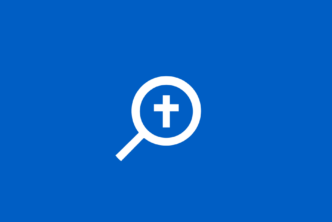Some of the most exciting events we attend each year are the national meetings of Evangelical Theological Society and Society of Biblical Literature held in mid-November, this year in Washington, DC.
We’ll have a booth at each meeting where you can meet a number of Logos staff. It’s an exciting time for us to meet and hear from the academic crowd and show off new products and features that are in the works or recently shipped.
Beyond just stopping by the booth, you can also attendmore than a half-dozensessions that relate to Logos Bible Software! Some of the sessions are presented by Logos staff, and someare presented by scholars who are using our software or developing new databases for Logos.
ETS events are listed first, then SBL…
ETS Papers by Logos Staff
Thursday – November 16
10:10-10:50 am
- Michael S. Heiser (Logos Bible Software), You’ve Seen One elohim, You’ve Seen Them All? A Critique of Mormonism’s Apologetic Use of Psalm 82
11:00-11:40 am
- Rick Brannan (Logos Bible Software), Subjects and Predicates and Complements, Oh My! Searching the New Testament with Sensitivity to SyntaxThis paper examines different sorts of syntactic searches that can be pursued from the starting point of a word. Questions like “When is [word] used as a subject?” or “What verbs are used when [word] is a subject?” will be examined and discussed.
SBL Papers & Presentations by Logos Staff, Users, and Project Contributors
Saturday – November 18
18-107 : Syntactically-Tagged Databases of the Hebrew Bible: Overview & Training Seminar 4:00 – 6:30 PM|Room: Bulfinch – GH
- This seminar will overview the latest quantum leap for computerized research and teaching in the Hebrew Bible: textual data bases tagged for syntactical force and structures.
Sunday – November 19
S19-60 : Computer Assisted Research1:00- 3:00 PM | Room: 103A – CC
- Theme: The Bible and MediaMark Dubis, Union University, PresidingJens Bruun Kofoed, Copenhagen Lutheran School of Theology; Learning, Liberty, and Libronix: How Multimedia Changes the Study of Ancient Israel’s History (30 min)The paper will present an outline of the theoretical arguments for using multimedia to enhance the learning process with a number of examples from the Danish Ancient Israel’s History Multimedia Project…The project takes advantage of the Libronix Personal Book Builder which allows users to create Libronix compatible books that integrate seamlessly with the Libronix Digital Library System.
S19-105 : Biblical Greek Language and Linguistics 4:00 – 6:30 PM|Room: 204C – CC
- Matthew Brook O’Donnell, OpenText.org, Presiding Rick Brannan, Logos Bible Software. Modifiers in the Pastoral Epistles: Insight for Questions of Style? (10 min)This paper examines modifier usage inside of epistolary prescripts in epistles traditionally attributed to Paul. The goal is to show that components of epistolary prescripts use modification for different purposes. This conclusion is well known, but by reaching the conclusion using only the OpenText.org Word Group Analysis, the subsequent value of the OpenText.org annotation for the analysis of style becomes evident.
Monday – November 20
S20-86 : Ugaritic Studies and Northwest Semitic Epigraphy1:00- 3:30 PM | Room: 142 – CC
- Michael S. Heiser, Logos Research Systems, New Implementations of Digital Resources for the Study of the Language and Literature of Ugarit (30 min)Scholars who work primarily in the Hebrew Bible, the Greek New Testament, and other classical material have long had the capability of studying the grammar, morphology, and literature of their text corpus via commercial software programs. Efforts to move the study of Ugaritic into the electronic world to date have focused on digital reproduction of tablets and information storage and retrieval. The prodigious achievement of Laboratorio de Hermeneumatica (Instituto de Filologia) of Madrid, accomplished under the leadership of J. L. Cunchillos, J. A. Zamora and J. P. Vita, paved the way for new implementations of their data in a sophisticated, user-friendly software package. This presentation offers attendees the first look at the result of a recent licensing agreement between the Laboratorio and Logos Bible Software. The new software package not only allows searching of the Ugaritic corpus, but the results of those searches are fully integrated with digitized print works relevant to the study of Ugaritic.
20-101 : Syntactically-Tagged Databases of the Greek NT: Overview & Training Seminar 4:00 – 6:30 PM|Room: Bulfinch – GH
- This seminar will overview the latest quantum leap for computerized research and teaching in the Greek New Testament: textual data bases tagged for syntactical force and structures.
Tuesday – November 21
S21-6 : Computer Assisted Research9:00-11:30 AM | Room: 103A – CC
- Sheila McGinn, John Carroll University, PresidingAlbert L. Lukaszewski, St. Andrews, Scotland, Finding Discreet Sentential Structures in the New Testament (30 min)Considers how to use the Lexham Syntactic Greek New Testament “to find discreet structures in the syntax of New Testament Greek. The sentential structures highlighted will include the internal syntax of subordinate clauses, frames of dialogue, the use of quotations, and the intertwining of relative and participial clauses as manifest in the Catholic Epistles.”




